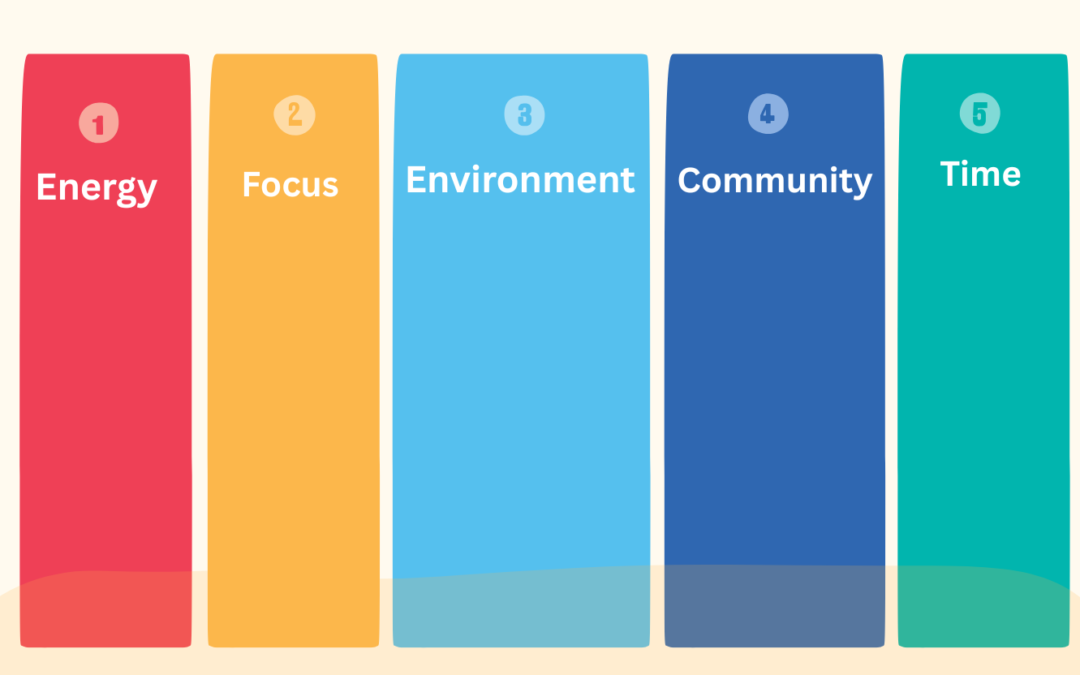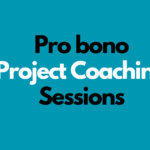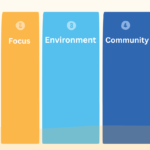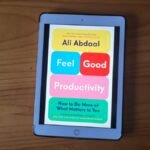Whether you’re writing a book, building a business, or launching something new, every project starts the same way: with an idea—and a challenge. That initial excitement often gives way to overwhelm. Suddenly there are too many moving parts, too little time, and that nagging feeling of, “Am I even doing this right?”
As a project coach, I’ve seen this happen across all kinds of people and projects. What really separates projects that succeed from the ones that stall isn’t just great tools or perfect planning. It’s a strong foundation built around what I call the five pillars of getting things done: Time, Energy, Community, Environment, and Focus.
Time: Your Unique Perspective
“Time management is really a misnomer—the challenge is not to manage time, but to manage ourselves.” — Stephen R. Covey
Time is the one resource we all know we need—and yet, it’s usually the first to feel completely out of control. But good time management isn’t just about blocking out hours on a calendar. It’s about being intentional: figuring out how much time each task really takes, and planning accordingly.
This is where coaching can make a huge difference. I help you create schedules that make sense for your life and the way you experience time. Some people feel stressed with tight deadlines. Others actually do better under pressure. There’s no one-size-fits-all.
Example 1: An author keeps getting pulled into social media instead of finishing a chapter. By switching to a distraction-free writing app and blocking access to social media during writing hours, they stay focused and keep building momentum.
Example 2: A consultant keeps bouncing between tabs and endless redesigns of their website. By using 45-minute deep work sessions with clear milestones, they cut the overwhelm and make steady progress.
Energy: Your Project’s Fuel
“Managing energy, not time, is the key to high performance and personal renewal.” — Jim Loehr & Tony Schwartz
Energy—your mental sharpness, emotional resilience, and physical well-being—is more unpredictable than time. A lot of people think they just need more discipline, but what they really need is smarter energy management.
Understanding your energy patterns—how they rise and fall throughout the day, week, or even the seasons—can help you match the right tasks with the right times. Instead of forcing yourself to push through, you learn when to rest, when to create, when to connect, and when to focus.
Example 1: A parent working on a side hustle notices they’re sharpest after school drop-off. By reserving that morning window for deep work, they get more done in less time.
Example 2: An artist working on their first collection feels drained and uninspired during winter. They use that season to sketch, plan, and gather materials—saving the high-energy creative work for spring, when they naturally feel more alive.
Community: The Power of People
“People who have a support network achieve more and feel better doing it.” — Brené Brown
Even if your project feels super personal, you’re not meant to do it alone. We thrive in connection—with people who support, challenge, and walk beside us. Community brings energy, creativity, accountability, and resilience.
In coaching, we work together to figure out who those people are for you—collaborators, mentors, clients, friends, or cheerleaders—so you’re not carrying it all solo.
Example 1: Someone learning to play an instrument sticks with it by joining a weekly group class. The support and encouragement keep them going—and procrastination takes a back seat.
Example 2: A remote worker launching their first online course feels stuck and isolated. Joining a creator cohort gives them structure, support, and problem-solving partners—and they actually finish and publish.
Environment: Your Invisible Partner
“Your environment will eat your goals and intentions for breakfast.” — James Clear
Your surroundings can make or break your progress. That includes your physical space, your digital tools, and even the emotional atmosphere you’re in. When your environment supports your goals, everything feels smoother. When it doesn’t, you’re swimming upstream.
In coaching, we look at all of this. Is your workspace helping or hindering you? Are your tools streamlined or making things more complicated?
Example 1: A startup team gearing up for a launch keeps running into delays. The problem? Confusing workflows and scattered tools. Once they streamline everything and use a shared dashboard, things start clicking.
Example 2: Someone wants to make a memory box for a loved one but keeps putting it off. By creating a cozy, visible spot with a box, supplies, and photos ready to go, they make it easy—and finally get started.
Focus: Where Progress Gets Made
“Clarity about what matters provides clarity about what does not.” — Greg McKeown
Focus is where it all comes together. Without it, your time leaks away, your energy scatters, and your motivation fizzles out.
Different brains focus in different ways. Some people need structure. Others need variety. Some benefit from timers or routines. As a coach, I help you find what works best for you—and then protect that deep work time.
Example 1: That same author getting distracted by social media? With a distraction-free app and scheduled writing time, they stay on track and finish chapters faster.
Example 2: That same consultant with too many tabs open? With a 90-minute deep work block and a clear goal, they finally stop spinning their wheels.
Why These Pillars Work Better Together (and With a Coach)
Each of the five pillars—Time, Energy, Community, Environment, and Focus—can help move a project forward. But when they work together, the whole process changes. Everything feels more doable. More aligned. More enjoyable.
As a coach, I help you connect the dots. Maybe your time problem is really an energy problem. Maybe your distractions are coming from a noisy environment. Maybe your lack of motivation is really about missing community.
Together, we build strategies that fit who you are, what you’re working on, and how you want to live your life.
Think of it this way: even with the right tools and materials, a builder still needs a solid foundation. These five pillars are that foundation—and coaching is how we build it strong.
Ready to Build Your Pillars?
Whether you’re starting a podcast, building a product, or writing something from the heart, you don’t have to figure it all out alone. And you don’t have to stay stuck in guesswork.
A project coach helps you stay grounded, focused, and clear.
Let’s build your foundation together—and make sure your project not only gets done, but gets done with purpose, joy, and sustainability.






